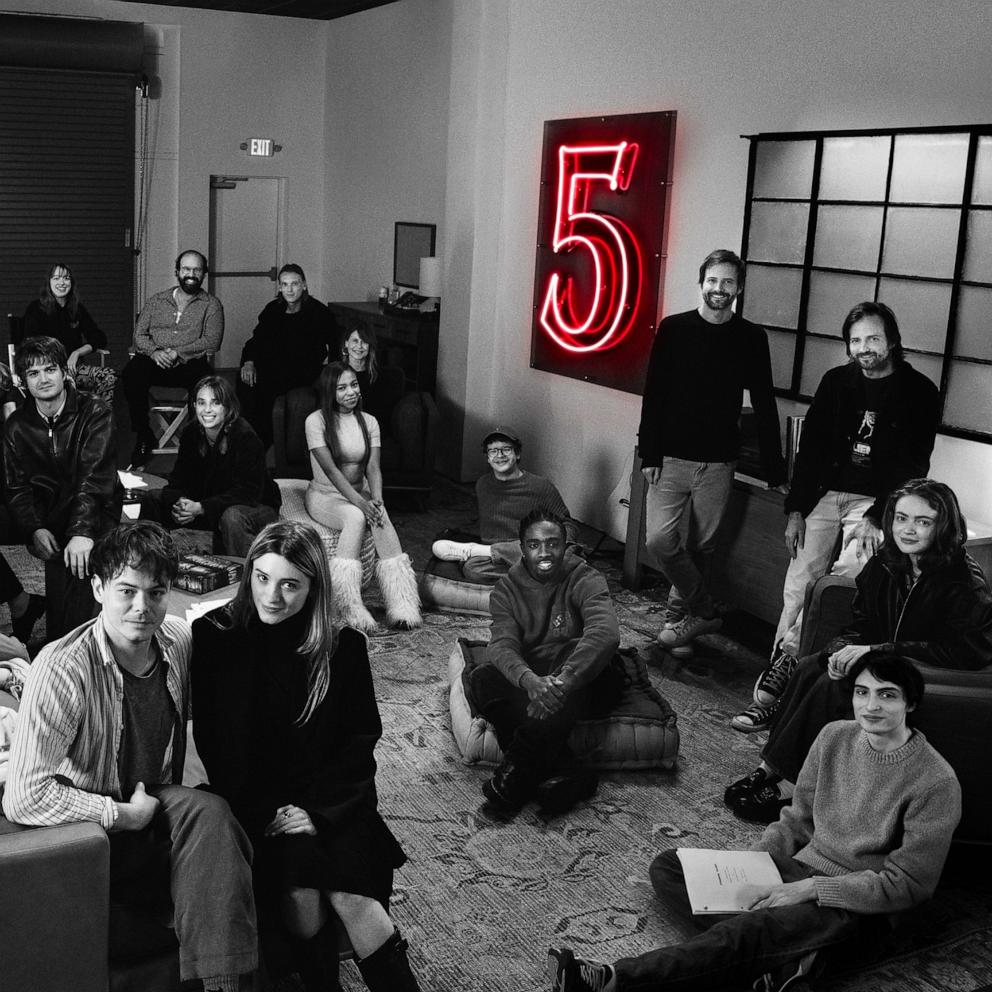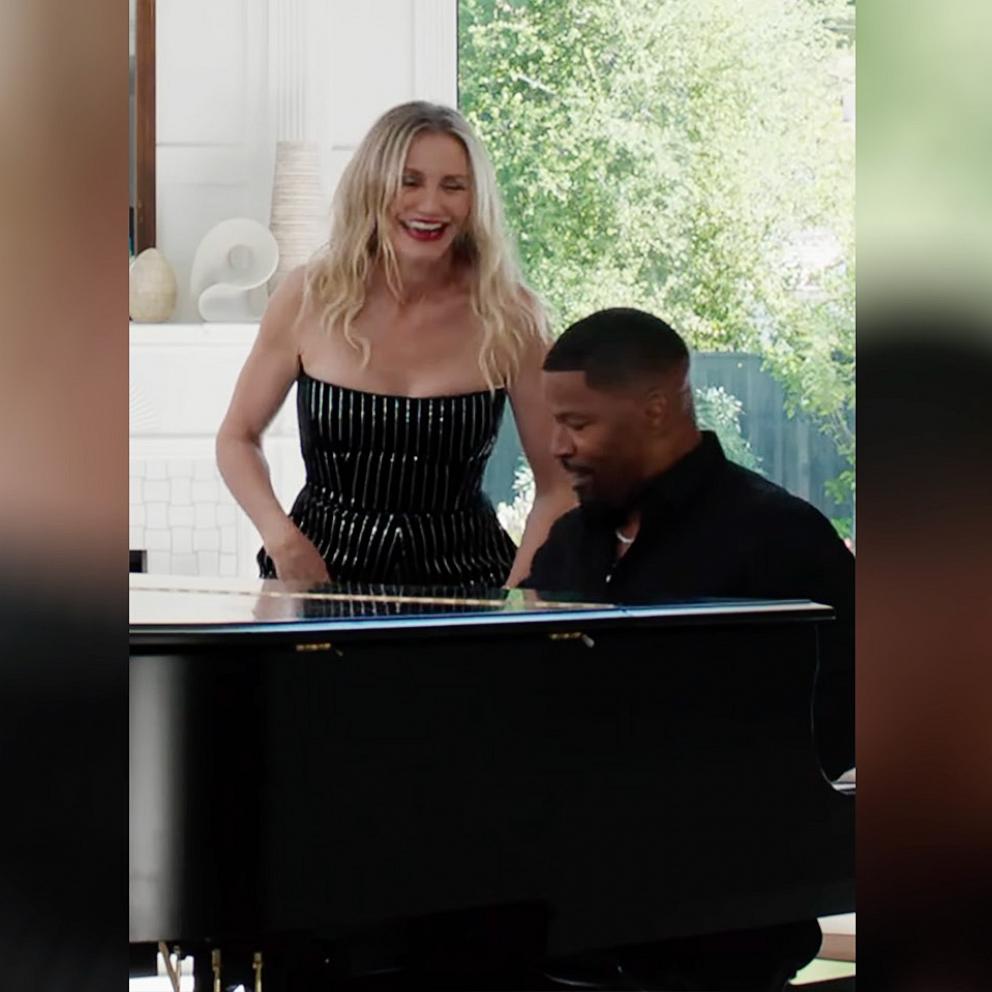The 10 memest memes of this decade, the decade of the meme
Memes! (And dank memes! (Especially dank memes!!))
Ten years ago, few knew what a meme was, except those extreme online souls, which was very meme-ish of them.
That was before the 2010s, the decade of the meme.
Memes, portable cultural units, have been around longer than 10 years -- think the dancing baby. But the '10s were their apotheosis, when they were popularized, weaponized, politicized, ironized, and most crucially, democratized.
Everyone memes now.
To engage online is to meme, so much so that most people don't even realize they're doing it. They just post in the eternally changeable multilayered cultural referent codespeak, and post, and post, and post. Memeing is online breathing.
To comprehend how we came to live in the Meme Age, ABC News gathered some of the memest memes of the past decade.
Reader, it was a weird one.
10. Condescending Gene Wilder
This meme made the list more for its irritating usability than its quality, as Gene Wilder from "Willy Wonka and the Chocolate Factory" mugging sanctimoniously at the viewer has become a mainstay of online arguments.
And yeesh is it obnoxious. Rather than responding substantively in a Facebook comment or Reddit thread, a user could simply post a straw man argument with Wilder looking on skeptically, saying, either essentially or literally, "You must be new here."
"Condescending Gene Wilder" captured one crucial essence of meme-ness: endless adaptability. The meme could be used to make any point.
More than that, it was a cheap way of undoing any point, simply by positing naiveté on the part of the foe at whom it was aimed. If you argued the earth was round, some troll could easily make Wilder peer down on you for not realizing it was flat.
For the record, in the original scene Wilder is not being condescending, but eagerly showing off “the most secret machine” in his factory. The internet took something out of context!
9. 30-50 Feral Hogs
A recent addition, "30-50 Feral Hogs" arose as the nation reeled from successive fatal mass shootings.
When a post from Americana artist Jason Isbell about assault weapons went viral, a response suggested those weapons could be needed to stave off the attack of an oddly specific number of feral hogs:
This drew instant mockery from a tweetosphere longing for levity:
The meme picked up other memes, such as the William Carlos Williams poem or "The Simpsons" aurora borealis bit, like kids joining on an outdoor adventure:
"30-50 Feral Hogs" highlights an important categorical dichotomy: some memes spread because they mean something, and some because they don't.
There's certainly an argument that "30-50 Feral Hogs" was a commentary on the discourse surrounding gun reform, but its popularity felt more due to its lightness of being amid so much heavy news. It was a meaning reprieve, as proven by those still pining for the glorious buoyancy of Feral Hog Twitter:
8. Milkshake Duck
The internet giveth, and the internet taketh away. Never is this more true than when someone finds themselves the subject of a viral online story, which can crown a previously anonymous person an instant hero -- and just as quickly convert them into a villain.
This process was perfectly condensed in the tale of the Milkshake Duck, which nailed in 140 characters the internet's Gregor Samsa effect of waking up to find yourself a bug:
"Milkshake Duck" has become such a shorthand for the undoing of something thought to be good that people now cross their digital fingers that its fate doesn't befall their latest passion.
7. Crying Michael Jordan
"Crying Michael Jordan" was "you hate to see it" before "you hate to see it."
In this case, a picture -- specifically a portion of a picture, specifically MJ's slick face -- was worth at least five words.
Now people are typing this out as if it's new. You hate to see it.
6. Corncob
If you find yourself desperately insisting your hot take was 100% correct -- ONE-HUNDRED PERCENT CORRECT -- and your online opponents calling you out are the ones in the wrong...well, friend, you're a corncob:
There's plenty of condemnation of social media as a constant exercise in self-cocooning -- and it can be that.
But online discourse can also be one of the first arenas in which a person encounters intelligent opposition, discovering that what seemed self-evident to them is wild nonsense to everyone else, and that their perceived wisdom was perhaps just their unperceived bias. This breach of certainty can be a painful experience, and it's not uncommon for angry, defensive howling to follow.
To find a real time example of a corncob, open Twitter and wait.
5. Distracted Boyfriend
"Distracted Boyfriend," which arose from a stock photo of a man turning to look at another woman while his current SO glares in shock and disgust, has consumed the internet since 2017.
Capturing the digital tendency to constantly pivot to the next thing after a prior obsession, it has been applied to pop culture, politics, grammar, and memes themselves, as one "Distracted Boyfriend" meme showed it overtaking the "Galaxy Brain" meme:
Even celebrities got in on this one:
Hey look, I made one!
The origins of the meme are disputed, though one history traces it back to a post about Phil Collins (d)evolving from his Genesis-era prog rock phase to "In The Air Tonight"-era pop, which feels random enough to be true.
The ur-image came from a series taken by a photographer in Gerona, Spain; thanks to variety of shots snapped, multiple plot twists have since emerged, including a same-sex wedding and gender reversals.
“I didn’t even know what a meme is until recently," the photographer told Wired Magazine in 2017, though it's safe to say he does now. Here, I made another one:
4. Galaxy Brain
Speaking of Galaxy Brain, the expanding brain meme took off two years ago to become one of the internet's most useful, encapsulating the way online discourse tended toward increasingly absurd takes. To post a Galaxy Brain take is to be so contrarianly clever, or cleverly contrarian, as to accidentally own yourself. (You can 1-2 this by insisting your Galaxy Brain take is actually correct; see #6.)
The meme is commonly thought to have originated with the following Reddit post:
Even more than most memes, the expanding brain easily leapt into real life (or is it the other way around?):
3. Harambe
From here on out, this list is all animals.
This shouldn't be a shock: the internet loves animals. But it never loved an animal like Harambe.

Harambe was the silverback gorilla who was killed in 2016 by officials who said they did it as a precaution after a child crawled into his enclosure at the Cincinnati Zoo. The details of what happened in the enclosure were disputed, with some saying the gorilla was dragging the boy, others that it was almost protecting him; either way, Harambe did not survive, triggering furious debates over the actions of everyone from the boy's parents to the zoo.
So far, so analog. Then the internet got ahold of Harambe.
The meme started with a relatively earnest hash tag, #RIPHarambe, but it quickly got weird. Harambe's visage suddenly was everywhere, photoshopped into photos of celebrities who died that year, pictured reigning in Heaven:
He was memorialized in poetry:
Even Green Party candidate Jill Stein tweeted in remembrance of him as a (tongue-in-cheek?) symbol of injustice:
The outpouring was a mix of Weird Twitter dadaism and genuine objection over "the disparities of mourning on the Internet." (The zoo was not amused, and the meme had a nasty shadow life in racist online attacks.)
In the end, Weird Twitter would be the community that ensured Harambe's legacy lived on in ironic glory. As of this writing, the Harambe subreddit was still trying to vote the late gorilla's portrait back onto the front page.
2. Grumpy Cat
Grumpy Cat almost didn't make the list because the famously scowled feline has become so embedded in our culture that she no longer even feels like a meme.
From humble beginnings on Reddit, the sourpuss -- whose real name was Tarter Sauce -- grew to be worth more than $100 million, thanks to merchandise, promotional deals, pics with celebrities, and even an appearance on "Good Morning America."
Alas, Grumpy Cat passed away earlier this year at the age of 7 from a urinary tract infection. In true form, she was outlived by her own meme:
1. Doge
At last, we arrive at "Doge."
"Doge" (pronounced with a soft "G," like GIF) was, at its most basic, an image of a Shiba Inu dog staring preciously at the camera, with doltish, non-grammatically positive phrases around its head in neon comic sans.
Much canon, very classic:
Again, memes either spread because they mean things -- because, like "Milkshake Duck" or "Corncob," they condense complicated cultural processes into communicative bursts -- or because they don't mean anything.
"Doge" meant nothing. It meant so little it achieved a kind of vacuum purity, disseminating fluffy joy while denying any and all explication.
For instance, try not to laugh at this -- but also try to explain why you like it:
Sweet, innocent "Doge" galloped throughout the internet in 2013, the last time the internet was good, before bots and trolls irreversibly metastasized across platforms and comment sections. Those infections existed in 2013, but were hardly as coordinated and insidious as they would become only a short time later. Looking back, it's hard not to see "Doge" as the web's final frolic, before it all turned too real.
But, to be clear, "Doge" is not "LOL Nothing Matters," that spinning, mocking clipart skepticism that defines our age.
In fact, Doge posits a universe in which plenty of things matter -- just not this.
Those days? Very gone. Much miss.




